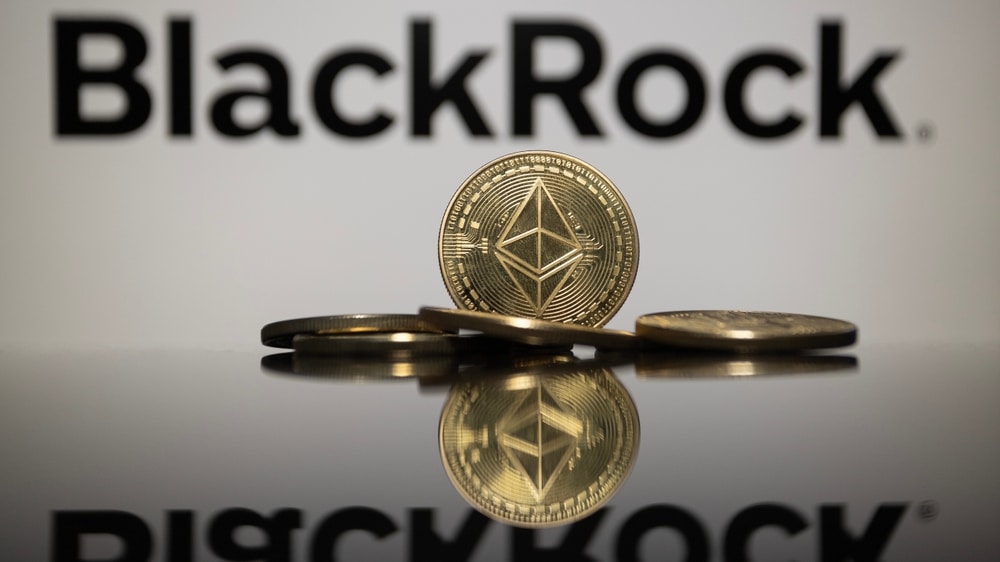Pockets Associated With BlackRock’s Tokenized Fund Spammed With Unsolicited ETH From Twister Cash

CORRECTION (March 21, 2024 5:30 p.m. ET) : A old model of this narrative incorrectly identified the receiving wallet as belonging to BlackRock; on the replacement hand, it’s simplest connected with the fund and is just not any longer controlled by it. The narrative also inaccurately mentioned that BlackRock seeded its contemporary fund with $100 million, when it used to be a wallet connected with BlackRock’s fund that holds $100 million in USDC. We feel sorry about the errors.
BlackRock’s contemporary digital asset fund has drawn wide attention for the reason that asset supervisor equipped its first institutional crypto fund on Wednesday.
Alternatively, a wallet connected with the fund has also drawn a quantity of questionable transactions to its now publicly-known Ethereum deal with, including an unsolicited transfer of ETH through sanctioned crypto mixer Twister Cash.
BlackRock filed with the SEC on March 14 to present its BlackRock USD Institutional Digital Liquidity Fund (BUIDL). Internal 24 hours of asserting the fund, a wallet connected with the fund conserving $100 million in USDC began to salvage tokens and NFTs from dozens of assorted addresses, including ETH moved through Twister Cash. In retaining with onchain analytics firm Arkham Intelligence, 0.97 ETH, rate about $3,324 at fresh prices, used to be transferred from Twister Cash to the wallet connected with the fund.
The ENS domain “reltor.eth” initiated the transaction by interacting with the Twister.Cash Router contract by calling the “withdraw” plot. This plot dictates the fair contract to withdraw funds from the privateness protocol to put collectively to ship the funds to their remaining destination, as shown by blockchain facts from Etherscan. The wallet connected with BlackRock’s fund then got ETH from Twister Cash at 10:35 a.m. ET on Wednesday morning, lots of hours earlier than BlackRock’s reliable announcement of the fund.
Probably True Points
The transfer comes 18 months after OFAC sanctioned Twister Cash for its employ in helping North Korea’s utter-sponsored hacking neighborhood, Lazarus Neighborhood, launder billions of bucks in cryptocurrencies. While any Ethereum deal with can salvage cash or tokens from any different, conserving ETH that lately moved through Twister Cash can fresh real acceptable challenges.
Read Extra: Twister Cash Cofounder Arrested, One other Sanctioned by U.S. Authorities
In retaining with the U.S. Treasury, any U.S. person, including monetary institutions, conserving blocked property similar to ETH from Twister Cash are required to inform their situation to the Treasury’s Build of labor of Foreign Resources Alter (OFAC). “Once a U.S. person determines that they be pleased virtual foreign money that is required to be blocked pursuant to OFAC’s regulations, the U.S. person have to deny all events entry to that virtual foreign money, create particular that they follow OFAC regulations connected to the conserving and reporting of blocked sources, and put in pressure controls that align with a risk-based strategy,” OFAC outlined.
This nearly straight equipped potential acceptable challenges for wallets that had got unsolicited funds from Twister Cash. Soon after the preliminary Treasury sanctions, unknown actors started sending ETH from Twister Cash to addresses of noteworthy crypto personalities. In Aug. 2022, the privateness mixer used to be worn to ship small portions of ETH to many addresses similar to ones belonging to Ethereum co-founder Vitalik Buterin, Coinbase CEO Brian Armstrong, NFT artist Beeple, and gradual-night host Jimmy Fallon.
OFAC quickly turned attentive to U.S. of us receiving unsolicited ETH from Twister Cash and put out a statement in September 2022 stressing that while these funds might perhaps well maybe maybe moreover simply technically fall within the scope of those regulations, it might perhaps well maybe maybe no longer prioritize enforcement in opposition to such “dusting” assaults, most most doubtless acknowledging excessive obstacles on their enforceability in these conditions.
Source credit : unchainedcrypto.com
